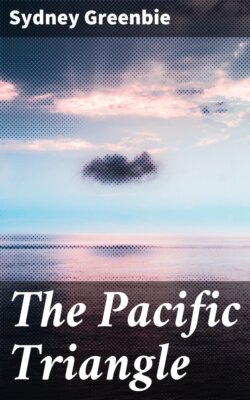Читать книгу The Pacific Triangle - Sydney Greenbie - Страница 19
На сайте Литреса книга снята с продажи.
5
ОглавлениеWho, then, does the work of the island? It is obvious that it is being done. There isn't another island in the whole Pacific so modernized, so thoroughly equipped, so American in every detail, so progressive and well-to-do. It is the most sublimated of the sublime South Seas. One wonders how white men could have remained so energetic in the tropics, but one is not long left uninformed. Honolulu is an example of a most ideal combination of peoples, the inventive, progressive, constructive white man with the energetic, persistent, plodding Oriental. Without the one or the other, Honolulu would not be what it is; both have contributed to the welfare of the islands in ways immeasurable.
It is not surprising, therefore, to find the Oriental elements as much in evidence as the Occidental. One hardly knows where one begins and the other ends. As spacious and individualized as are the European sections, so the Asiatic are a perfect jumble of details. The buildings are drab, the streets are littered, the smells are insinuating, the sounds excruciating.
A most painful noise upon an upper balcony of an overhanging Chinese building made me come to with a sudden clapping of my hands against my ears. As noise goes, it was perfect,—without theme or harmony. It could not have been more uncontrolled. What consolation was it that in China there was more of it! Gratitude awakened in me for the limitations a wise joss had placed upon the capacities of the individual. Yet men are never satisfied. These Chinese weren't, and combined their energies. What one man couldn't accomplish, several could at least approach. So we had a band. I should certainly never have thought it possible, myself.
However, they were trying to achieve something. It was neither gay nor mournful; nor was it sentimental. What purpose could it possibly have served? Surely they had no racial regrets or aspirations, they who played it! The bird sings to his mate, but what mate would listen to such tin-canning and howling, and not die?
To me there was something charming in this shamelessness of the Chinese, something childlike and naïve. I had never realized the meaning of that little rhyme,
I would not give the weakest of my song
For all the boasted strength of all the strong
If but the million weak ones of the world
Would realize their number and their wrong.
The thought is almost terrifying when applied to the teeming hordes of the world, whether of Asia, Europe, or the South Seas. If sheer numbers are any justification of supremacy, God had better take His old world back and reshape it nearer something rational. One becomes conscious of this welling up of the world in Hawaii. Not that the Chinese and the Japanese haven't the same right to life and to its fulfilment in accordance with latent instinct and ability, with all its special racial traits and customs, but one doesn't just exactly see how numbers have anything to do with it. Yet here are the Chinese and Japanese slowly, quietly, persistently out-distancing the white by a process of doubling in numbers, where mentality and ingenuity would doubtless fail.
One hears much about the progress of the Orient. That is, white folk talk much about the way in which the East is taking to Western ways, and call that progress. One would not expect that sort of progress to proceed with any great velocity in the East itself, but it is only necessary to observe the ingrowing tendencies of life in Hawaii, however superficially, to see how foolishly optimistic is the expectation of such progress. For even in Hawaii, where everything has had to be built afresh, where everybody is an alien—with very few exceptions—and where the dominant element is European, the East is still the East, and the West the West. There is a slight overlapping, but not enough to make one lose one's way,—to make a white man walk into a Chinese restaurant and not know it. The fastidious white man whose curiosity gets the better of him, moves about the Chinese and Japanese districts fully conscious of his own shortcomings. He is less able to feel at home there than the Oriental on the main street; but why doesn't the Oriental build for himself a main street?
I was abroad early one Sunday morning, headed for the Chinese section. Lost in thought, I went along, gazing on the ground. Had Charlie Chaplin's feet suddenly come into my range of vision I should not have been more surprised than I was when two tiny shoes, hardly bigger than those of a large-sized doll, and with some of that stiff, automatic movement of the species mechanicus, dissipated my reflections. I raised my eyes slowly, as when waking, up, up, up,—hem of skirt, knees, waist-line, flat bosom, narrow shoulders, sallow face, and slit eyes! A Chinese woman! She was as big as a fourteen-year-old girl, but her feet were a third of their due proportion. How many thousands of years of natural selection went into the making of those little feet? Yet she was a rare enough exception to astound my abstracted mind. About her strolled hundreds of others of her race, who would have given much of life to possess those two little feet.
